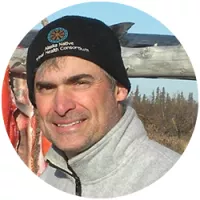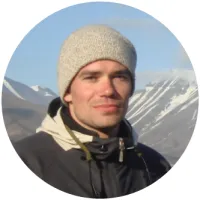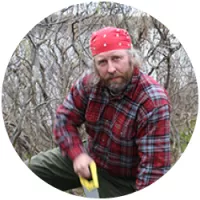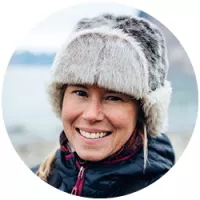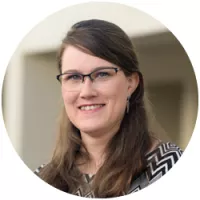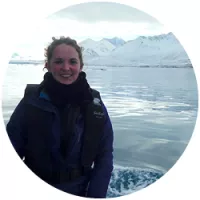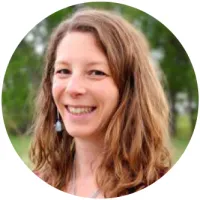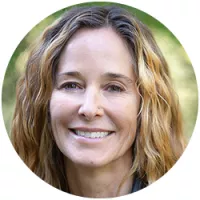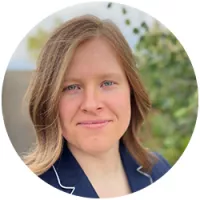
Arctic Rain On Snow Study (AROSS)
Project Team
The core team for the Arctic Rain on Snow Study includes a diverse group of experts.
Mark C. Serreze
Project Lead and Director of the National Snow and Ice Data Center
Mark C. Serreze is a distinguished professor of Geography at the University of Colorado Boulder (CU), a fellow of the CU Cooperative Institute for Research in Environmental Sciences (CIRES), and director of the CIRES National Snow and Ice Data Center (NSIDC). He specializes in Arctic climate research, including atmosphere-sea ice interactions, synoptic climatology, boundary layer problems, numerical weather prediction climate change and extreme weather events. He has conducted fieldwork in the Canadian and Alaskan Arctic on tundra, sea ice and glaciers. Serreze has published widely, and is recognized as a Thompson Reuters Highly Cited Researcher. In 2014, he was elected Fellow of the American Meteorological Society. In 2017, he was awarded the title of Professor of Distinction at CU for his contributions to research, teaching and service. In 2019, he was awarded the title of Distinguished Professor. He has published an award-winning textbook, “The Arctic Climate System” (now in its second edition), and teaches a course in the CU Department of Geography under the same title. His popular science book “Brave New Arctic: The Untold Story of the Melting North” was published in April 2018. Serreze has testified before the US Congress, is a frequent media contact on issues of climate and climate change, and has appeared in television documentaries.
Andy Barrett
Associate Scientist, National Snow and Ice Data Center
Andy Barrett is an associate scientist at the National Snow and Ice Data Center. He focuses on cryospheric processes in the Arctic. He has extensive experience working with output from atmospheric reanalyses (a form of weather model) and climate models, and remote sensing data. He uses information about precipitation and atmospheric conditions from reanalyses, along with estimates of snow conditions from remote sensing images to map rain on snow and melt events.
Mike Brook
Software Architect, Alaska Native Tribal Health Consortium (ANTHC), Alaska Pacific University (APU)
Mike Brook works at the intersection of technology and public health. He has been involved with the Alaska Tribal Health System for the last five years, where he has focused primarily on the human health impacts of the changing Arctic climate. His main vehicle for doing this has been the Local Environmental Observer (LEO) Network, a social network of local and science knowledge-holders sharing their observations of their changing environments. LEO is hosted by the Alaska Native Tribal Health Consortium and Alaska Pacific University. Mike is the software developer for the LEO Network.
In addition to LEO, Mike has contributed technology to numerous public health initiatives in Alaska and elsewhere, such as projects pertaining to availability of traditional foods, management of contaminated sites, increasing community resilience, and medication compliance for HIV patients. Mike has a BS in Engineering from Princeton University.
Michael Y. Brubaker, M.S.
Director, Department of Community Environment and Health, Alaska Native Tribal Health Consortium (ANTHC)
Mike Brubaker has been working in the Alaska Tribal Health System for over twenty years. His work focuses on environmental health, health impact assessments, climate change, and achieving safe, healthy, and sustainable communities. He was born in Juneau and raised in Anchorage. He earned a BS in Biology from St. Lawrence University and a MS in Environmental Management from the University of San Francisco. He spent ten years as Community Services Director at the Aleutian Pribilof Islands Association, a regional tribal non-profit health consortium serving the Unangan population in Southwestern Alaska. He has spent the past ten years working for the statewide arm of the tribal health system where he directs environmental health services. Mike co-founded and directs the Local Environmental Observer (LEO) Network and is managing editor of the weekly e-journal, The Northern Climate Observer. He is associate faculty at Alaska Pacific University where he directs the Center for Climate and Health.
Matthew Druckenmiller
Research Scientist, National Snow and Ice Data Center
Matthew Druckenmiller is a research scientist with the National Snow and Ice Data Center (NSIDC) at the University of Colorado Boulder. Since 2006, Matthew has worked within the coastal regions of Arctic Alaska, investigating the connections between changing sea ice conditions and marine mammal behavior, seabird habitat, and local community use of sea ice for hunting and travel. With a background in geophysics (PhD, University of Alaska Fairbanks) and geo-environmental engineering (BS and MS, Penn State University), Matthew pursues collaborative and interdisciplinary research linked to Arctic climate resilience. Matthew co-leads the Exchange for Local Observations and Knowledge of the Arctic (ELOKA) Program at NSIDC—a program that explores novel approaches to community-led data management, community-based environmental monitoring, and supporting data sovereignty. With long-held interests in science policy, he has served as a Science Policy Fellow at the National Academies’ Polar Research Board and as a AAAS Science Policy Fellow at the U.S. Agency for International Development. Matthew currently serves as a co-editor of the NOAA Arctic Report Card and the Arctic Chapter within the annual BAMS State of the Climate Report.
Bruce Forbes
Research Professor, University of Lapland
Professor Bruce Forbes has a background in applied ecology and geography in northern high latitudes, with special emphasis on permafrost regions. His experience is circumpolar, encompassing studies of rapid land use and climate change in Alaska, the Canadian High Arctic, various regions of northern Russia, and northernmost Fennoscandia. His approach is strongly interdisciplinary and participatory, aiming for the co-production of knowledge, particularly concerning local and regional stakeholder-driven research questions. He has conducted fieldwork annually in the Arctic for 35 years. Within AROSS, Prof. Forbes will liaise between the remote sensing side and the oral history/archival and ground-truthing work with reindeer herders in N Fennoscandia and West Siberia.
Shari Fox
Research Scientist, National Snow and Ice Data Center
Shari Fox is a Canadian geographer and research scientist with the National Snow and Ice Data Center (NSIDC), University of Colorado Boulder. Shari has been working with Inuit communities in Nunavut since 1995, on diverse research projects that center Inuit knowledge of the environment and environmental change. Her work brings together multidisciplinary, multi-cultural teams of researchers, students, and community members to study and problem solve together.
From 2003-2018 Shari lived full-time in Clyde River and her work on the rain on snow project will take place in Clyde where she visits regularly. She will work with Inuit hunters and colleagues to understand historical and recent rain on snow events in that region and impacts to various species and human activities in the area. She will travel with a team of Inuit hunters to Finland to exchange knowledge with reindeer herders and work with the rest of the project team to synthesize project data.
Roza Laptander
Researcher, Arctic Centre, University of Lapland
Roza Laptander is a Nenets sociolinguist. Spheres of her research interests are based on linguistic anthropology, ethnography and socio-cultural changes among the Arctic societies. By collecting interviews from the Nenets reindeer herders and fishermen she documents the Nenets history and traditional knowledge about living and surviving in the Arctic, but also stories about the present life on the Yamal tundra in the conditions of climate change and intensive industrialization of the Russian Arctic.
Leena Leppänen
Researcher, Arctic Centre, University of Lapland and Finnish Meteorological Institute
Leena Leppänen is a researcher with the Arctic Centre, University of Lapland and Finnish Meteorological Institute. She has strong experience on snow geophysics including in-situ snow measurements in Finland and Antarctica. Her research interests are snow physics, snow microstructure, citizen science snow observations and optical and microwave remote sensing. She obtained her PhD in 2020 with a thesis about measurements and modelling of seasonal snow characteristics for interpretation of passive microwave observations. She has been working at the Finnish Meteorological Institute in Sodankylä since 2012 and at the Arctic Centre in Rovaniemi since 2021.
Michelle McCrystall
Postdoctoral fellow, Centre of Earth Observation Science, University of Manitoba
Michelle McCrystall is a postdoctoral fellow at the Centre of Earth Observation Science in the University of Manitoba in Winnipeg, Canada. She holds a PhD in Arctic climate dynamics from the University of Cambridge and British Antarctic Survey and specialises in large scale teleconnections, specifically on the role that tropical regions have on the climate of the Arctic and on future Arctic climate change using global climate models. In this project she focuses on current and future changes in precipitation means and extremes and rain on snow events in global climate models as well as assessing links between these events and global teleconnection patterns.
Sirpa Rasmus
Researcher, Arctic Center, University of Lapland
Sirpa Rasmus is a senior researcher at the Arctic Centre at University of Lapland. Her background is in climate change impact studies and geophysics of snow and ice. Her approach is interdisciplinary, and she is interested in the interactions between the abiotic and biotic nature, seasonal weather and human activities. Nowadays she studies the changes in Finnish reindeer management, e.g. land-use conflicts and climate change adaptation. Her stakeholder network includes reindeer herders and representatives of multi-level governance institutions of reindeer management. She is a member of the Future of Reindeer Husbandry in Finland–working group, chaired by Finland’s Ministry of Agriculture and Forestry.
To collect the Finnish data base of the location, timing and intensity of ROS and extreme cold season precipitation events she will work with Saami and Finnish herders during workshops organized in Fennoscandia, and study the Finnish archival records. She will also do georeferencing of past events with herders, to validate output from the event detection algorithms, and participate in snow simulations.
Betsy Sheffield
Project Manager, National Snow and Ice Data Center
Betsy Sheffield has worked in various capacities within NSIDC since she joined the user services staff in 2001. Her most recent roles are as project manager for the Exchange for Local Observations and Knowledge of the Arctic (ELOKA) program and of the International Thwaites Glacier Collaboration. With a background in environmental studies and an interest in health and food security, Sheffield brings passion for people and problem solving to her role.
Julienne Stroeve
Research Scientist, University of Manitoba and National Snow and Ice Data Center
Julienne Stroeve specializes in Arctic ice processes and the fate of the ice cover based on satellite remote sensing, models, and field observations. She holds a PhD in Aerospace Engineering from the University of Colorado Boulder. Stroeve is internationally recognized for her many contributions to sea ice science and has authored more than 100 scientific papers. In 2019, Stroeve won the European Geophysical Union Weertman Medal in Cryospheric Sciences. She holds dual positions with the University of Manitoba at Winnipeg and the National Snow and Ice Data Center. She has two primary roles in the project: 1) assess climate model projection of changes in the frequency of rain on snow events through the 21stcentury; and 2) assess links between the frequency of rain on snow events and major atmospheric teleconnection patterns affecting the Arctic such as the North Atlantic Oscillation.
Jessica Voveris
Graduate Research Assistant, National Snow and Ice Data Center
Jessica Voveris is a graduate student with the University of Colorado Boulder's Geography Department and a graduate research assistant with the National Snow and Ice Data Center. She specializes in synoptic and mesoscale meteorology, in addition to weather analysis and forecasting. She primarily researches meteorological drivers at varying spatial scales for Arctic rain on snow events, examining data and visualizations of atmospheric reanalysis and weather observation datasets.
She has six years of prior experience with various agencies of the US federal government, working in backgrounds ranging from energy regulation to operational meteorology. Her experience also includes weather forecasting in Juneau, Alaska, for the National Weather Service office based there. Jessica earned her Bachelor of Science degree in meteorology from the University of Oklahoma in 2013.
Any opinions, findings, and conclusions or recommendations expressed in this material are those of the author(s) and do not necessarily reflect the views of the National Science Foundation.



